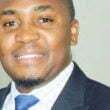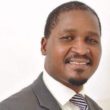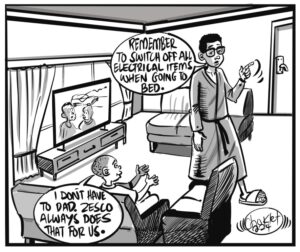Zambia Centre for Inter-party Dialogue (ZCID) spokesperson Jackson Silavwe says the Centre has not received any official notification from State House stating that the Church should lead the dialogue process.
And Silavwe has clarified that ZCID is not interested in leading the national dialogue because its role is only to facilitate the meeting and see to it that all stakeholders participate.
Speaking when he featured on Prime Television’s Oxygen of Democracy programme, Monday, Silavwe said contrary to claims by Patriots for Economic Progress (PeP) president Sean Tembo, who recently resigned, State House was not controlling the centre.
“We have not received any letter from the Head of State as well as the PF President. What we heard is a press statement that was released on behalf of State House and signed by Mr Amos Chanda. So, there is no such directive, really, to ZCID. PF has got two representatives on the board of ZCID, and these are the ones who present issues concerning PF on dialogue. Even the representatives haven’t brought out those issues, so, really, I can’t respond to an issue that hasn’t been presented to the board. But I can tell you what the NDSS meeting resolved, they were categorical. They gave us direction as a Centre that in this dialogue process, you need to take care of two salient components of this dialogue process. The first salient point is reconciliation; that if you look at some of the issues between what you describe as key stakeholders, most of them are, but the stakeholders were able to tell us,” Silavwe explained.
“There are more issues in this impasse that we are facing as a country that needs to be addressed. And these are the reforms of the institution. But they thought that it is imperative for you as a Centre for this dialogue to last and to stand a test of time, you must be able to involve critical stakeholders like the Church. So, ZCID has been mandated by the constituent that they should be able to incorporate stakeholders who can mediate between parties. And even the NDSS stakeholders were very categorical, they were saying; if these issues, though we recognise that there are two people in the ring fighting, there are also these other people that are also in this process. Make sure that you deal with these two as you also involve other stakeholders and other political players to make sure that we level the playing field. So, [I] am not the spokesperson for State House and as far State House is concerned, they have not written anything to us.”
And Silavwe claimed that Tembo resigned from his position in ZCID without notifying his sponsors.
“It is regrettable that Sean has decided to resign. That’s his decision, really, and the board has got no hand in it. He himself released the press statement; he gave himself an ultimatum of 48 hours. I have come to work with Sean since December; he’s a very hardworking gentleman and a patriot who loves this country. It is regrettable that he’s leaving the ZCID board based on his own decisions. I want to make this very clear; Sean was a board member representing the Forum for Political Parties Outside Parliament. They are the ones who sponsored him to the board. He released a statement without consulting the people that sponsored him to the board. He released a statement giving himself 48 hours to resign when he never brought the issue to the board as a member, because at every board meeting, before we start deliberating, we ask, ‘should we amend the agenda so that we can incorporate some emerging issues?’ He never did that, but he went ahead and issued a statement. In [that] press statement that Sean released on that material day, he asserted that the President was shouting instructions from State House to ZCID,” he narrated.
“Our colleague, Sean Tembo, did the same thing by releasing that statement. A board member was shouting instructions to the board, now the board does not function that way. The board of ZCID has got integrity and dignity, it would have been proper for Sean Tembo to bring issues when he actually knew that the following day the board was supposed to convene to bring those issues to the board and deliberate. In fact, it would have been within his right if the board fails to satisfy that demand, he would have gone to the constituency that sponsored him to the board, to speak to them so that they can be able to guide him further on how to handle situations. Such [a] process was not followed and it goes back to my assertion. If Sean wanted us to respond, what did he want us to respond to? Because State House never wrote to us. The members of the board representing the PF did not give us an official position. So what did our colleague want us to respond to?”
Meanwhile, Silavwe said that ZCID was not interested in leading the dialogue process for politicians but that it would only facilitate the meeting.
“ZCID do not want to lead the dialogue process, we’ve got no business leading dialogue. We want to facilitate, to make sure that that woman who cannot trade because the PF and the UPND, the NDC and UPPZ cadres are fighting. That woman who cannot go to the market because of the political temperatures that have risen to astronomical levels in our country are lowered down. That is what we want to facilitate, to bring parities to the table to say, ‘can we talk?’ How do we find the solution to the problems that this country is facing? ZCID only want to facilitate, other people are trying to confuse the people of Zambia that we want to lead this process and a lot of people have been confused. To lead what? When you are bringing parties together to come and talk and come up with consensus, there is no leading, there is facilitating. When you say, ‘leading,’ the person who is leading comes up with the terminologies, casts out the terms of reference, ZCID does not even want to cast the terms of reference,” said Silavwe.
“ZCID wants when political players come together, the Church come together, trade unions come together, the Church mother bodies come together, political parties come together, civil society bodies come together, youth-led organizations come together. When they all come together that’s when they will come and say, ‘ladies and gentlemen let us form the terms of reference of how this dialogue is supposed to be. And already, we have an idea of what the stakeholders are saying through the national stakeholder summit, because they were able to tell us.”












